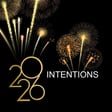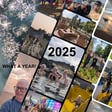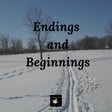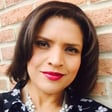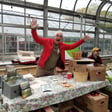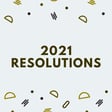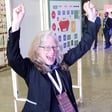Become a Creator today!Start creating today - Share your story with the world!
Start for free
00:00:00
00:00:01

How Lloyd Whitesell challenges norms
Lloyd Whitesell challenges norms just by being himself. His academic career began with co-creating the field of queer musicology. He's now among the leaders working to make space for diverse populations within music. Along the way, he's won awards for research excellence and teaching. He's also the world's expert on singer songwriter Joni Mitchell's talent as a composer. Listen to our conversation and consider which norms unintentionally influence you.
Transcript
Introduction to ADP's HR Solutions
00:00:00
Speaker
Businesses need to think beyond today. That's why ADP uses data-driven insights to design HR solutions to help your business find more success tomorrow. HR, time, talent, benefits, payroll, ADP, always designing for people.
Meet Lloyd Whitesell, Musicologist
00:00:16
Speaker
My name is Tracey Ariel and I am an apologetically Canadian.
00:00:30
Speaker
So today I'm really excited to speak with Lloyd Whitesell.
Lloyd's Journey from Pianist to Musicologist
00:00:35
Speaker
Lloyd and I have been friends for a while, but I'm interviewing him today because of his, he's got several books and a lot of, he's a really interesting doctor at the musicology center at McGill. Lloyd, how are you doing? Doing well. Thanks for inviting me.
00:00:54
Speaker
Yeah, it's awesome. I'm so happy to talk with you. Obviously, you're known for your book about Joni Mitchell. So of course, we're
Exploring Identity and Queer Musicology
00:01:02
Speaker
going to talk about that. But before we do, can you talk a little bit about your body of work and what it has to do with identity? Because I was fascinated to see how many different ways you've managed to look at identity in a body of work that's kind of diverse.
00:01:19
Speaker
Sure. Well, so a little bit about me. So I got started as a pianist and worked with opera singers for a while when I was younger. And at some point I took a swerve and I went into academic studies. So music history or musicology as it's called sometimes. And then it was like, well, so what do I want to do? What is my intellectual path?
00:01:45
Speaker
And first, I was really interested in how does music relate to other art forms, like literature, because I had strong interests and I've always been a book person. And so there's a lot of cool theory of literature and narrative and how it's all constructed and how, you know, how readers interact with books. And I thought, oh, well, there's got to be something here for music, too. So that was my first
00:02:13
Speaker
that's where I headed first was this kind of cross art and theoretical take on operas, song cycles and that kind of thing. But I was also, so as a gay person, I was interested because also in the humanities at the time when I was in grad school, there was a lot of studies based on sexual identity, sexual orientation, as it impacts creative expression.
00:02:38
Speaker
So that was something that I really wanted. I thought, oh, I probably can say something about that. And it was a challenge. It was like, it can't be in a direct way. You can look to feminist scholarship for people trying to think, well, does someone's experience as a woman affect the kind of books they want to write, the kind of emotions they want to express, or how they interact with the world in a creative way? Same thing with queer people.
00:03:08
Speaker
So that's my first book that I published was a collection of articles. I wrote the introduction, co-wrote it with a friend of mine from the UK and contributed one article. But it was on this question of, you know, from the perspective of a so-called queer musicology. So that's one aspect of identity right there that still is. Which book was that? Just remind me of the title.
00:03:35
Speaker
The title is called Queer Episodes in Music and Modern Identity. So it's 19th and 20th century is the period that our contributors were looking at. But this is still, so that was kind of a new field back
Role at McGill and Impact of COVID
00:03:55
Speaker
then. And so it was really exciting to kind of get in.
00:03:59
Speaker
when things were changing, because musicology, you know, for a long time, musicology had been pretty conservative and stiff and stodgy. And so there was a lot of back and forth within the field, you know, from the conservative side and from the people who are trying to say, no, we can talk about all these exciting political things and identity questions as well. It's not just about the notes. So maybe I'll let you get a word in edgewise.
00:04:29
Speaker
I know I wanted you to talk about that because that is sort of a basics of everything, right? Because you are an academic, you work for McGill, you are, I think, your assistant dean now of that department, right? The exact title right now is Vice Dean. Vice Dean, okay. That doesn't mean assistant?
00:04:52
Speaker
Well, there's associate deans and then there's vice dean, but we don't need to, we don't need to get into semantics. But what is a vice dean? Like why, like why, why is that because you specialize in a specific area or like?
00:05:08
Speaker
It's really it's sort of like the the Dean's right-hand person I mean it actually didn't exist until last year because we're going into the bicentennial for McGill University and there's gonna be a lot of the Dean was gonna have to do a lot of Working with donors and doing traveling except what happened of course was COVID
00:05:33
Speaker
So I haven't been doing the bicentennial support. I've been doing COVID support. But that's just the way it works out, right? Yeah, it works.
00:05:46
Speaker
Yeah, well, this year, things have changed for almost everybody. I mean, that you just got to go with the flow. I mean, you got to go with
Glamour in Music and Film
00:05:53
Speaker
the flow. Yeah, exactly. But, you know, so what I was really interested in seeing, obviously, you also have a book called The Wonderful Design, which is, which is, again, how does that appeal? Like, this was, this was more
00:06:14
Speaker
almost fashion rather than music, wasn't it?
00:06:18
Speaker
Well, the topic is glamour in music. So what I'm looking at there is actually film. So film musicals and Hollywood film musicals. So the nice classics with Judy Garland and Gene Kelly and Fred Astaire, but also up to the present, up to Dreamgirls and La La Land and that kind of thing. So this is not so much about identity as it is about style, but it's
00:06:48
Speaker
I develop a concept of glamour that applies to the visual as well as the sonic.
00:06:55
Speaker
But so many theorists, when they talk about glamour, are only talking about the look or maybe the material objects, like what things are made of. But there's a lot that's just in the... You can get a sense of glamour from a sound. And so that was my challenge there, was how do you talk about that? And what kind of emotions can be packed into a glamorous sound and a glamorous look?
00:07:26
Speaker
that's interesting because you've taken what is really a staid sort of idea, I mean it's been covered in so many different ways, and then you pulled in an entire different sense and then expanded it. So can you give us a little idea of what your
00:07:46
Speaker
basically what what do you think how do you think people composers do that with music i mean what because you're talking about mood in many ways but it's more than mood yeah it's kind of yeah you're right it's in between mood it's in between emotion and technique in a way and so uh it's like
00:08:08
Speaker
There's this idea that came up in a British writer. He talks about structures of feeling. So in other words, emotion sounds like it's just a soft thing and it's intangible and subjective. You can't really, it's hard to relate from person to person, but people in similar
00:08:26
Speaker
experiences or in similar social situations can relate to certain structures of emotion. And in a way, you can talk about glamour as structuring your feelings in a certain way because it's a rousing fantasy, rousing desires.
00:08:46
Speaker
you know, so that, you know, like, here's a glimpse of paradise. You know, here you have the illusion that you can get to it for a temporary moment. And all of the, you know, you imagine yourself being a better person just by looking at this glossy photograph or. Yeah. Sorry, did you want to say something? I was just going to ask you if you can give me an example. I wanted to give you ask you if you can give me an example in an actual specific song. Ah,
00:09:18
Speaker
I can give you, so there's one that's just from the radio, like from the 40s. Glenn Miller Orchestra had their classic moonlight serenade.
00:09:40
Speaker
And so if you can reconstruct that in your mind or go to YouTube and call it up and listen to the sound of what instruments there are, how they interact with each other, how smoothed out it all is, because there's a rhythm section but it's really smoothed out and made elegant and everything has to be so restrained.
00:10:02
Speaker
So when I was studying all this music, it was like, what's the recipe for glamor? So there has to be sensuous qualities, lots of gooey or excessive or extravagant textures, whether it's visual or sonic. But then there has to be restraint to balance that out because then it's not glamorous unless you are holding yourself in a restrained way or singing in a cultivated way or holding the rhythms in so it doesn't sound too dancey, right?
00:10:32
Speaker
And the other two ingredients are sophistication. So you're pulling things that other people might not think of. You're aware of all these vocabularies and they might be more sophisticated rather than common.
00:10:50
Speaker
And finally, elevation. Somehow it can lift you out of the everyday. And that can be just in a simple way where melodies rise up or you have choirs hovering like a cloud. But somehow it's making you feel ethereal and elevated. And so hopefully if you listen to that Glenn Miller, you can get all of those ingredients in that song.
Joni Mitchell's Influence and Academic Pursuit
00:11:14
Speaker
But then a really well-known one.
00:11:18
Speaker
A really well-known one is maybe in a surprising place. It's in the Wizard of Oz. It's somewhere over the rainbow right away.
00:11:27
Speaker
And if you remember that you're in a real setting in the farmyard, but then Dorothy is thinking, what if I could be over in that other land? And so the sounds that come out of her throat and the sounds of the orchestra call to mind, they're all glamorous. So it's very surprising. It's like it doesn't fit in that world because she's picturing utopia for us through her singing.
00:11:58
Speaker
Oh, that's an interesting element as well. I'll definitely put the Moonlight Serenite into the show notes, though, because I think that that song is, it appears in so many instances of pop culture and always in order to bring the glamour to it. So it's one of those songs that, although it was written in the 40s, it still has a really current presence.
00:12:22
Speaker
Yeah, isn't that funny? And it just even for, you know, those of us that weren't around, you know, it just brings, it brings up this picture from that time.
00:12:35
Speaker
Yeah, exactly. Big bands and, you know, dance roles and all that kind of stuff. You know, it really does. I mean, you're right. It sort of hints at glamour. That's a really I'm very happy you spoke about that one. It's really I don't know what to expect because you've done so much. I mean, I love the picture you sent me because because you are one of the foremost academics now on Joni Mitchell because of your book took
00:13:04
Speaker
a different look at her in that you actually looked at her work from a musicology sense. You actually talked about how she used music in a different way to show the kinds of things that she was pushing for almost as an activist. And she did it as a composer from your point of view. Can you talk a little bit about your research in that and how it came about? What made you study Joni Mitchell in the first place?
00:13:34
Speaker
Well, of course I was a fan at, you know, starting as a fan. But then, you know, even when I was a little piano student in conservatory and, you know, with my roommate, we were listening to the album Blue and grooving on it and getting all you know, sort of, you know, melancholy and
00:13:57
Speaker
because we were trying to learn how to be musical. We were trying to learn how to be performers. And here was this amazing songwriter who just projected so directly all these emotions. So it was part of that kind of training.
00:14:15
Speaker
At the same time, I was talking with another friend, even back then when I was a teenager, and talking about, well, how does she do that? What are the chords? And this woman, I don't remember if she's a flutist or what, but she says, watch out because Joni Mitchell is really modal. So it was like a way of saying that all this stuff that you've been learning in music theory class is not going to help you.
00:14:40
Speaker
Like she's not doing the same thing that Bach, et cetera, were doing because she's doing something modal. So that sort of must have stuck in my head. And then later on when I went into academic music scholarship,
00:14:56
Speaker
then I realized oh wow I want to figure out what she is actually doing how does she get those amazing effects and what makes her distinct what makes her different from other songwriters of her time and then as I was also getting you know sort of
Academic and Career Path to McGill
00:15:12
Speaker
engage with feminism, then I realized no one's writing about this woman. The books you could find were biographies, they were gossip, they were maybe cultural studies of her impact as a cultural figure.
00:15:28
Speaker
But there wasn't anything on her as a composer as like, what is it about her songwriting, except you could find little things from guitarists and more specialized magazines, you know, about her alternate tunings and instruments and that kind of thing. But it was really not very much out there. And so I thought, wow, I have something to contribute here. And I'd like to just do
00:15:51
Speaker
picture of her, what she's doing with her lyrics and music, and what are all the tools that she's exploring. And so that's what I took. That was my project in that book. It's like, what are the different aspects and what, you know, harmony was a big thing. That's one of the very aspects that makes her very distinct.
00:16:14
Speaker
So that was a big element, but I talked about Melody as well and also her ability to shape shift. If you look across all her songs, she takes on all these amazingly different voices from
00:16:30
Speaker
just simple souls who are just chatting, you know, are just jamming with friends to like these cutting kind of Bob Dylan s kind of knockdown satires to narratives, ballads to, you know, kind of these scenario, these little vignettes of people she observed in Los Angeles. And so so there was just so much there, I just tried to do a first mapping out of everything that's there.
00:17:03
Speaker
And did it start off as an academic paper and then turn into a book? What's the process in terms of, because of course I'm talking to some creative entrepreneurs, what did you do in terms of the publishing side? Was it academic first?
00:17:19
Speaker
It is from a university press. It has its academic credentials, but hopefully there's enough in there for a general audience as well. I have a lot of analysis, so not everyone might know the chord symbols that I use.
00:17:43
Speaker
Yeah, it is definitely from the academic world. So I had a mentor in my early career who helped me out and said, you know, this could really be something that you could explore. Like I was just talking about my interest in Joni. So why don't you? He says, I'm on the board of Women and Music, this journal.
00:18:04
Speaker
feminist journal and so why don't you write an article and so that was the first publication and then that just led I realized that you know I wanted to do the whole you know cover all of it not just one aspect so so it was definitely through an academic path and but but a mentor was very helpful.
00:18:26
Speaker
So who was the mentor? Was that someone who was a teacher or? He was in my first teaching job. He was a slightly older colleague who helped hire me there and, you know, who was interested in the so-called newer musicology, the newer approaches, like identity approaches and, you know, women's studies, etc. And so he, you know, he gave me encouragement and, you know, was able to
00:18:55
Speaker
I was at the University of Virginia. Ah, okay. So this was your undergraduate period? No, this is my first teaching job.
00:19:10
Speaker
Your first teaching job, okay. Well, actually that gives me a good chance to talk about your path because you haven't been in Canada your whole life. You've been here quite a while now, but can you give an idea of where you come from and what led you here?
00:19:32
Speaker
Sure. So I'm from Minnesota, so Canada-adjacent. Yeah, we're the states we sometimes think we should take on.
00:19:44
Speaker
Yeah, so we would go to Canada for canoeing trips or fishing or something like that. And actually, when I was in high school, I went to these summer camps. They had a program of camps where you learned languages. So I went to a French camp where
00:20:03
Speaker
you know, you go there and then you are supposed to sort of start to, you know, have a feeling like you're going to a different country and you're supposed to speak French as much as possible. And the older you get, then there's, you know, the more restrictions on not speaking English. So I did this for a few years. And then the last year we took a road trip as part of the camp experience and came up to Quebec. So we, you know, did a little visit to Quebec City and to Montreal.
00:20:33
Speaker
Back then and little did I know I would end up here as an adult, but anyway, so when I finished my Doctorate degree then it was I had a hard time finding academic jobs that there's not a lot of humanities jobs and so I
00:20:53
Speaker
I had a period of seven years where I was in a one year position, you know, not knowing from one year to the next where I might end up and I was applying all over the place. And so I had a very traveling experience and my partner just said, well, I'm going to stay in Minneapolis until you settle down. So that's what happened.
00:21:21
Speaker
And so I ended up getting, you know, my first gig at McGill was just a one year job, but then it turned into a permanent job and I'm so happy. I love being at McGill. I love my colleagues and I love being in Montreal. So I'm a Canadian citizen. I'm a dual citizen now. And so it's my adopted country.
00:21:46
Speaker
And I have to say that it's been a very much saner experience in the past four years than if I would have stayed in my own original country.
00:21:59
Speaker
Oh my gosh, yes. I think the last four years and 2020 will all be wiped out in January in such an exciting day. Yes, I know. And it's very weird looking across the border as an expatriate and feeling, oh, my family is there. What are they going through? It's a very weird experience.
00:22:27
Speaker
But so that tells you my path here. It tells you very basic about your path here, but it doesn't tell me about your experience here because you've been here. I mean, how many years have you been here? It's been a long time now. It's been 19 years. 19 what? 19 years. When did you come?
00:22:56
Speaker
19 years. Oh my gosh. So you celebrate 20 years soon. When do you celebrate? What month? Uh, August, I guess. Coming up. Yeah.
00:23:07
Speaker
Oh my gosh, that's such a cool idea. I didn't get a chance to tell you, to ask you a little bit about how your identity has changed since you've moved here. And like what, my usual question is, what's your biggest success? And then what's your biggest failure? So thinking about that, and your
00:23:33
Speaker
your path in Canada. Can you talk a little bit about your experience since you've come here and doing a career that's actually very difficult to follow in Canada as well? I mean, there's no doubt that in the last 20 years things have changed for people with a gay identity by itself, but people studying, I mean, you are
00:23:58
Speaker
putting out your ideas all the time publicly. Can you talk a little bit about your successes and failures on that level? Wow, that's a lot of questions, all in a big... I have to try and... It gives you an opportunity to really talk about what you want. I see, yeah.
00:24:20
Speaker
Well, my biggest failure is a long time ago because I was on track to be a performer. I thought I was going to have a career as a performer and I had a performance injury, an injury in the course of performing, which then there were implications and kind of screwed up that career path.
00:24:47
Speaker
And at that time... Okay, hold on. What kind of performer? Piano. What were you doing and what was the degree? So I was a pianist and I was still in my undergraduate degree, but I was working as a accompanist.
Embracing Queer Identity in Academia
00:25:09
Speaker
So collaborative with singers mostly, although other instrumentalists as well.
00:25:15
Speaker
uh and so that just means gigging around and going to different pianos that you're not prepared you know like every piano is different the touch is different sometimes it's stiffer uh and so i strained a muscle and then that led to complications and uh
00:25:33
Speaker
So, you know, injuries, I mean, performance injuries is the science has been getting better. But at that time, there wasn't a lot of people who were studying performance injuries, you know, just think of sports medicine. But if you're talking about arts medicine, it was really, you know,
00:25:50
Speaker
It was rudimentary, at least where I was. If I was in New York City, that would have been a different case maybe. But so then I had to just sit and take some time off and figure out, you know, this is a life change and what am I going to do? And that's when I eventually, but it took me a while, decided to go into scholarship and academia rather than the performing arts.
00:26:14
Speaker
So that was a big, I mean, it was, I don't know, it's not a personal failure so much as just an obstacle that happened, you know, that I had to deal with and recover from and figure out. And of course, you know, trying to figure out in the midst when you're totally depressed.
00:26:34
Speaker
is not, you can't think straight. That's like another layer to it. So, you know, I had to get through the depression before I could make, you know, some good life decisions after that. But I'm really happy with what I ended up doing because it sort of brings together the performing side, the creative side and the bookish analytical side.
00:26:57
Speaker
And as a teacher, you get to stand up in front of people and be pretty performative a lot anyway. So that's very rewarding, I find. OK. That's a fascinating path. And that was when you were in Virginia, was it? Nope. That was when I was a little pipsqueak and just in my undergraduate. So then after that, I had to decide to go into grad.
00:27:26
Speaker
I had to go into grad school in musicology and then I got my first job at Virginia. Oh, okay. And so where was that? What school was it? University of Minnesota.
00:27:41
Speaker
Oh, that was in still in Minnesota then. Okay. Wow. Okay. And so, so your path has been kind of complicated up until then. But then since then, when you look at, at least your online bio, and you look at all the different books that you've done, they all seem very connected. Can you talk a little bit about how you've turned like your favourite success in this process?
00:28:09
Speaker
in my work, you mean? I mean, so in terms of work. Well,
00:28:18
Speaker
I guess just, I'm just glad I stuck to it because it was hard when I was first applying for jobs and I was really, it was very uncertain to know how accepting different places would be of queer musicology, for instance, or of any of the new musicology like women's studies, et cetera.
00:28:42
Speaker
So, you know, I knew people that were open minded, progressive, whatever you want to say. But then, you know, you're just sending out your your job, your materials and CV to everyone. You have no idea.
00:29:00
Speaker
whether they're conservative or whether they're, you know, what kind of thing. So in a way, it's just like I had to be true to myself and just think that, you know, where do I want to end up? I want to end up in a place where I don't have to pretend to be what I'm not, you know, and a place where they would appreciate this kind of work and think it's valid.
Fostering Student Individuality in Music
00:29:22
Speaker
So that's kind of a long term success that I just am very fortunate
00:29:28
Speaker
that I found a place where they, you know, like they immediately said, Oh, we think you're great. Like they liked everything I did. Whereas I didn't have to squeeze myself into different, you know, I didn't have to squeeze myself into a different mold or anything like that. So and that's just the interesting
00:29:50
Speaker
Interesting thing about who you are is that you are sort of a dichotomy of people, you know, like, I mean, you are your your your work and your passion is really obvious and it's and it's out there and it's and it's some breaking barriers in terms of what people think because you're breaking barriers on the music side in that you're bringing
00:30:12
Speaker
the rigors of an academic study and composition to ideas that are really popular and not necessarily evident, you know, like Joni Mitchell's career. Nobody else could have thought about that. You know, when people think of Joni Mitchell, they don't necessarily think of composer, great composer, you know, and that's the theory that you gave us.
00:30:38
Speaker
Right. And also, my listeners don't get to meet you, but I've known you for years and you're, I mean, you're one of the most conservative types that I've ever met and, you know, in terms of, you know, you're quiet, you're relatively
00:30:56
Speaker
You look like a teacher from McGill. Whatever that would mean. And yet you're studying glamor and really extreme visions of what it means to be gay in the world. And so how do you balance those dichotomies?
00:31:25
Speaker
I mean, I guess what I try to hold, the idea of being true to yourself is something that I try to foster in my teaching. In other words, I would like to see what people come when they want to study with me. What do they bring? What are their interests? And if I have something to give, how can I foster their own individual?
00:31:47
Speaker
search, you know, that's what's important to me instead of because when I was younger and I was getting advised on what graduate schools to go to people told me stories of where they wanted to do something but they went to an Ivy League department where they were not allowed. There's like no that you can't do that or that you have to wait and write two books first before you get to do what you really want to do. So that just
00:32:15
Speaker
I mean, isn't that just like, isn't that terrible? It's like a cycle of abuse is what it is. You know, it's like, well, what do you, what is the life of an intellectual, the life of an intellectual is like you, you're given a gift and you should be able to, to, to explore that gift and foster it. So, um, so that's the way, I mean, at least in my intellectual explorations, I feel very adventurous. Maybe in my personal
00:32:45
Speaker
Maybe when you look at me, I'm not flamboyant or anything or bohemian, but I try to challenge my students to think differently and to not, I mean, one of the lessons of gay experience and the analysis of gay experience is being aware of the norms and how norms can damage you.
00:33:11
Speaker
Like the norms are invisible often, but you can feel them. They're pushing you to a certain way. And for some people, it's harmful. For a lot of people, it's harmful. But for some people, they can tell.
Canadian Citizenship and Community Involvement
00:33:28
Speaker
It's like you're pushing me in the wrong way. So I feel like that can happen in the life of the mind too.
00:33:39
Speaker
Oh, how interesting. So that's how yeah, so so from for you, it's an intellectual rigor and making sure that people do what they actually are here to do. Yeah, and be but also be open minded. In other words, like, so there's the norms, but there's also the margins. Like, I just think that there's a lot of fun stuff going on at the margins. So that's always where I'm drawn to.
00:34:08
Speaker
Actually, you can say that about lots of things. So tell me about your experience in Canada and what I mean, you chose to be a Canadian, you decided to take on dual citizenship. Why?
00:34:32
Speaker
Well, I was just happy with my position, with my job, and, you know, living here in Montreal. And just then, so wanting to be part of the community, wanting to be able to vote, wanting to make a difference, you know, just
00:34:50
Speaker
wanting to participate because it's like, so having gone through the seven years of uncertainty and job insecurity and not knowing where I was going to end up, once I landed in a place that was very happy, it was like, okay, I don't want to move again. This is it. I wanted to put down roots. And so that was definitely behind that. And plus, it's just, there's so much to learn.
00:35:17
Speaker
culturally in Quebec and in Montreal because so look I'm at the you know an anglophone institution in French speaking Quebec in you know Canada and so it's like these layers of
00:35:37
Speaker
you know what I mean like layers of politics layers of cultural exchange it's just it's just been fascinating uh to to kind of get get well I read a podcast called unapologetically Canadian in quebec I mean yes exactly and I'm glad you're not apologetic
00:36:02
Speaker
No, well, why should I be? It's like, it's fun. Apologetically, Canadians are apologetic for everything. We don't have to be apologetic about identity. But, but I mean, and you are active in the community and you are, you do support, I mean, one of the reasons that I know you is because you've supported our farmers market for years and you are, you are a
00:36:32
Speaker
Support to people who are doing Really fun and important work in in in the city. So can you talk a little bit about? what you Your personal life your your community side, you know, what what what do you love doing outside of work? Well, what I love doing is
00:36:57
Speaker
Just so I live in Verdun so I love being by the water and I love being by green space and I love just exploring the bike paths and canals and islands and seaways and just letting my mind kind of you know heal itself.
00:37:19
Speaker
And then actually, it's through my partner in a lot of ways that I have more connection to the community because since he is has been working with community politics and municipal politics, and then going to a lot of workshops or consultation sessions that all of a sudden, like, you know, he knew everyone down our streets. Like I just
00:37:48
Speaker
I had just been putting my head to the ground, my nose to the grindstone and going to the Metro and going to work. And then all of a sudden, you know, I was like, oh, there's so and so and oh, let's do a green alley and let's, you know, green our alley and meet all these people. And there's the cat lady who, you know, rescues cats. And so, so that was just a revelation. I have to say.
00:38:09
Speaker
I cannot take credit for that. It really is, you know, been, my partner's been that kind of involved. And so I've been, it's been very beneficial for me to get involved through him as well.
Challenges in Music Schools and Pandemic Impact
00:38:23
Speaker
So you chose to get involved. Not all partners get involved. You chose to get involved. Yeah.
00:38:32
Speaker
Yeah. You may not have let the project, you actually have, you're always there. You're always working. I mean, it's a, you do participate. Well, thanks, you're very, you're very, you're giving me good strokes here.
00:38:53
Speaker
I think it's awesome. I mean, was there anything that I didn't ask you that you really wanted to mention? Because we didn't talk about several of your works and we didn't talk as much about identity as I was thinking we were going to. Was there anything that you can help talk about? Well, there's one thing I do want to mention, just that since I mentioned I'm in administration in the School of Music at McGill University, is that
00:39:18
Speaker
A lot of music schools in North America are going through a kind of a rethink or you could even say an identity crisis. And this was brought home to us by a lot of our students this summer with the Black Lives Matter movement and the different demonstrations that were happening.
00:39:41
Speaker
And of course, it was intensified by the COVID crisis as well, because people were sort of trapped in, you know, this, the cybersphere, you know, and seeing all this stuff happening and wanting to get involved, but, but feeling kind of restricted. And so it's like things that I've been thinking about for much of my
00:40:02
Speaker
uh work career in terms of identity and diversity and being open-minded and representation of people who haven't been included in history. We're coming home to roost in a way like you know having to do with you know going going to my you know going to my work and like is
00:40:26
Speaker
are the people out in society reflected in the people in my work and so and also like who do we teach who do we put on our orchestra programs you know does it reflect the you know people of color does it do we talk about people's sexual identity so this is something that a lot of schools are going through and we're kind of going through that right now too and it's i find it very
00:40:50
Speaker
uh exciting but also i feel like i'm hitting uh
00:40:59
Speaker
I'm really glad that I'm the age I am and I have the experience I have in order to deal with this because it is very challenging. Because it's not easy to figure out, you know, once you've been trained a certain way. And sometimes the norms, like I mentioned, have been sort of baked into you, you know, like, oh, this is just this is the best music ever. And it's hard to realize, well, wait a minute, is that me speaking or, or have I been sort of like pushed into this way of thinking and
00:41:29
Speaker
So in response to some of the demands of the students who seem to be saying, well, look, do we look like a 21st century school? What do we need to do to try and open up what we do? And a lot of it has to do with identity. So I find it interesting that the stuff I've been thinking about intellectually is now intersecting with that aspect of leadership at the school. Yeah.
00:41:59
Speaker
actually is a really challenging moment in time because we are also dealing with a pandemic and even pulling in. Musicians individually have also been suffering this year because it's really hard for them to get work right now.
00:42:16
Speaker
I mean, I'm not even talking about the academic world, but our society is also suffering because even the people who are already performing or have jobs in music or in any of the performing arts have had to almost take a hiatus for the year. I mean, not quite, but almost.
00:42:38
Speaker
Well, it's true. It's very deep. It goes very deep. And this affects students who oftentimes, well, that's part of their income, is being able to do these performances as they're going to school. And then that is just taken out from under them. So it's like, aside from all the other uncertainties, there's that added level of anxiety.
00:43:02
Speaker
And I don't know, I mean, it didn't hit me as hard being, you know, on the academic side rather than the performing side. But I look at my colleagues in performance and they just were huge, huge, emotional, you know, just like, what do I do now? What is it gonna look like? How long is it gonna take if it gets back to normal? So you're right. Yeah. Yeah, yeah. And so to change an institution, which is already
00:43:32
Speaker
like changing a big ship while you're also facing such society as itself is almost in an identity crisis now too.
00:43:41
Speaker
Yep. You know, in terms of how do we how do we take what we are, some of what we've learned this year about inclusion and bringing new voices forward. And as all of us are trying to figure out how best to bring our own voices forward. I mean, everybody isn't sort of in it together.
Interview Conclusion and Gratitude
00:44:02
Speaker
And I mean, we've also I mean, on the ecological side, we've also got the
00:44:08
Speaker
the fact that people haven't been traveling, which has been great for the earth, but not so great for our human psychology and connections. Wow, I just love how you, I love how you put that bringing new voices forward and we're all in it together. Those are just really great things to keep in mind.
00:44:33
Speaker
Yeah, well, I mean, that was your that's what I got from what you said. So we're playing off each other. Thank you very much. I didn't have any other questions. I'm really, really happy to be able to to to present your work and to get to know you. I will put some links to some of your books into the show notes. Great. And thank you very much for your time. Thanks so much, Tracy. I look forward to seeing you in person.
00:45:03
Speaker
when we can do it. Yeah, me too. Thank you for listening to Unapologetically Canadian. This episode was brought to you by citygardeners.ca, the gardening club for city gardeners.
00:45:35
Speaker
Lucky Land Slots, asking people what's the weirdest place you've gotten lucky. Lucky? In line at the deli, I guess? Haha, in my dentist's office. More than once, actually. Do I have to say? Yes, you do. In the car, before my kids PTA meeting. Really? Yes. Excuse me, what's the weirdest place you've gotten lucky? I never win and tell. Well, there you have it. You can get lucky anywhere, playing at luckylandslots.com. Play for free right now. Are you feeling lucky? No, just necessary.
00:46:05
Speaker
you

